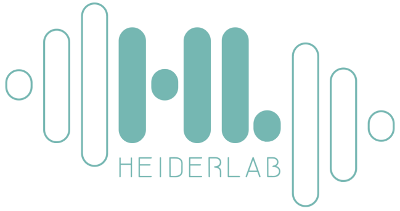CORona Drug InTEractions database
Defining the Substrate Envelope of SARS-CoV-2 Main Protease to Predict and Avoid Drug Resistance
A. M. Shaqra, S. Zvornicanin, Q. Y. Huang, G. J. Lockbaum, M. Knapp, L. Tandeske, D. T. Barkan, J. Flynn, D. N. Bolon, S. Moquin, D. Dovala, N. Kurt Yilmaz, C. A. Schiffer,
Abstract
Coronaviruses, as exemplified by SARS-CoV-2, can evolve and spread rapidly to cause severe disease morbidity and mortality. Direct acting antivirals (DAAs) are highly effective in decreasing disease burden especially when they target essential viral enzymes, such as proteases and polymerases, as demonstrated in HIV-1 and HCV and most recently SARS-CoV-2. Optimization of these DAAs through iterative structure-based drug design has been shown to be critical. Particularly, the evolutionarily conserved molecular mechanisms underlying viral replication can be leveraged to develop robust antivirals against rapidly evolving viral targets. The main protease (Mpro) of SARS-CoV-2, which is evolutionarily constrained to recognize and cleave 11 specific sites to promote viral maturation, exemplifies one such target. In this study we define the substrate envelope of Mpro by determining the molecular basis of substrate recognition, through nine high-resolution cocrystal structures of SARS-CoV-2 Mpro with the viral cleavage sites. These structures enable identification of evolutionarily vulnerable sites beyond the substrate envelope that may be susceptible to drug resistance and compromise binding of the newly developed Mpro inhibitors.
Source: BioRxiv
Related molecules
| Name | Synonyms | Genes |
|---|---|---|
| Envelop protein |
| Target | Target affiliation | Drug | Type | Result |
|---|---|---|---|---|
| Target | Target affiliation | Drug | Type | Result |
| Name | Synonyms | Genes | Origin |
|---|---|---|---|
| Name | Synonyms | Genes | Origin |
| Name | Synonyms | PubChem | DrugBank | RCSB PDB | ATC |
|---|---|---|---|---|---|
| Name | Synonyms | PubChem | DrugBank | RCSB PDB | ATC |
| Title | Authors | DOI | Source | Article type | Date |
|---|---|---|---|---|---|
| Title | Authors | DOI | Source | Article type | Date |
| Title | Status | Phases | Start Date | Prim. Comp. Date | Comp. Date | First Post. Date |
|---|---|---|---|---|---|---|
| Title | Status | Phases | Start Date | Prim. Comp. Date | Comp. Date | First Post. Date |
CORDITE (CORona Drug InTEractions database) collects and aggregates data from PubMed, MedRxiv, BioRxiv, ChemRxiv and PMC for SARS-CoV-2. Its main focus is set on drug interactions either addressing viral proteins or human proteins that could be used to treat COVID. It collects and provides up-to-date information on computational predictions, in vitro, as well as in vivo study data.
The information provided is for research only and we cannot guarantee the correctness of the data.
Please contact dominik.heider@uni-muenster.de for further information.
Programmable access
There is an open API for access programmatically to the database. The API will print a JSON output:
- Interactions
https://cordite-api.uni-muenster.de/api.php?action=list&table=interaction
- Targets
https://cordite-api.uni-muenster.de/api.php?action=list&table=target
- Drugs
https://cordite-api.uni-muenster.de/api.php?action=list&table=drug
- Publications
https://cordite-api.uni-muenster.de/api.php?action=list&table=publication
- Clinical trials
https://cordite-api.uni-muenster.de/api.php?action=list&table=clinical_trial

